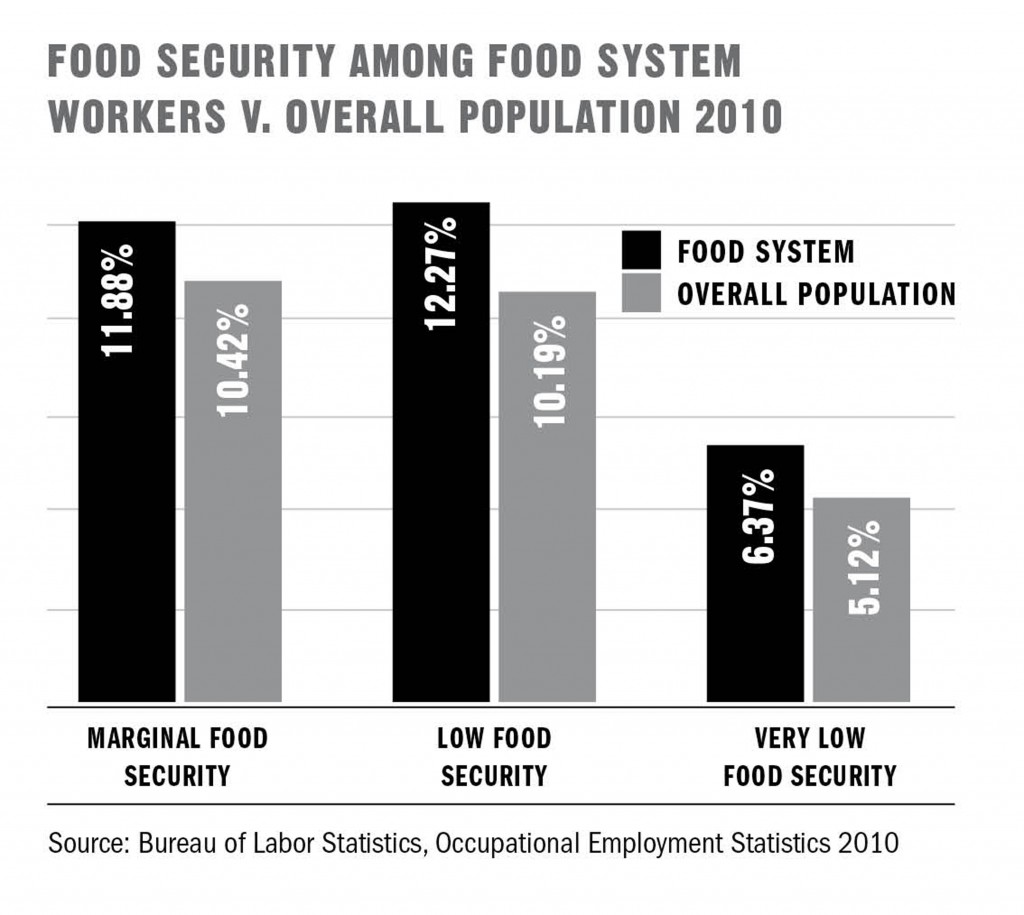"The Hands that Feed Us" by the FoodChain Workers Alliance
The FoodChain Workers Alliance is a coalition of worker-based organizations (founded in July 2009) whose members plant, harvest, process, pack, transport, prepare, serve, and sell food, organizing to improve wages and working conditions for all workers along the food chain.
"The Hands that Feed Us" report is here: http://foodchainworkers.org/wp-content/uploads/2012/06/Hands-That-Feed-Us-Report.pdf
A description of the report, from which the following has been drawn, can be found at their site here: http://foodchainworkers.org/?p=1973
"The Hands That Feed Us is based on nearly 700 surveys and interviews with workers and employers in food production, processing, distribution, retail and service, which collectively sell over $1.8 trillion dollars in goods and services annually, accounting for over 13 percent of the nation’s Gross Domestic Product.
According to our report, there are some good jobs in the food system (13.5% of workers surveyed earn livable wages), but the vast majority are incredibly low-wage, with little or no access to paid sick days and health benefits, with dire consequences for consumers. More than 86 percent of workers reported earning subminimum, poverty, and low wages, resulting in a sad irony: food workers face higher levels of food insecurity, or the inability to afford to eat, than the rest of the U.S. workforce.

The Hands That Feed Us examines the five core food occupations and industries in the food system: farmworkers (production), slaughterhouse and other processing facilities workers (processing), warehouse workers (distribution), grocery store workers (retail), and restaurant and food service workers (service). It examines how corporate consolidation throughout the food chain has created universal impacts on workers in terms of low wages, small to midsize employers in terms of unfair competition, and consumers in terms of food quality and diversity. Employers interviewed unanimously commented on how multinational food corporations receiving government subsidies and tax breaks and buying up their own suppliers has created unfair and unmanageable competition.
In addition to examples of poor work environments, the report also highlights fair business practices and steps that policymakers, consumers, and employers can take to improve conditions for food system workers."
Centro Campesino is an excellent example of a local Minnesota food workers organization; a description of their organization can be found here, in this introduction to Centro Campesino, the organization, its history, and its work, via an interview with Ernesto Vélez.